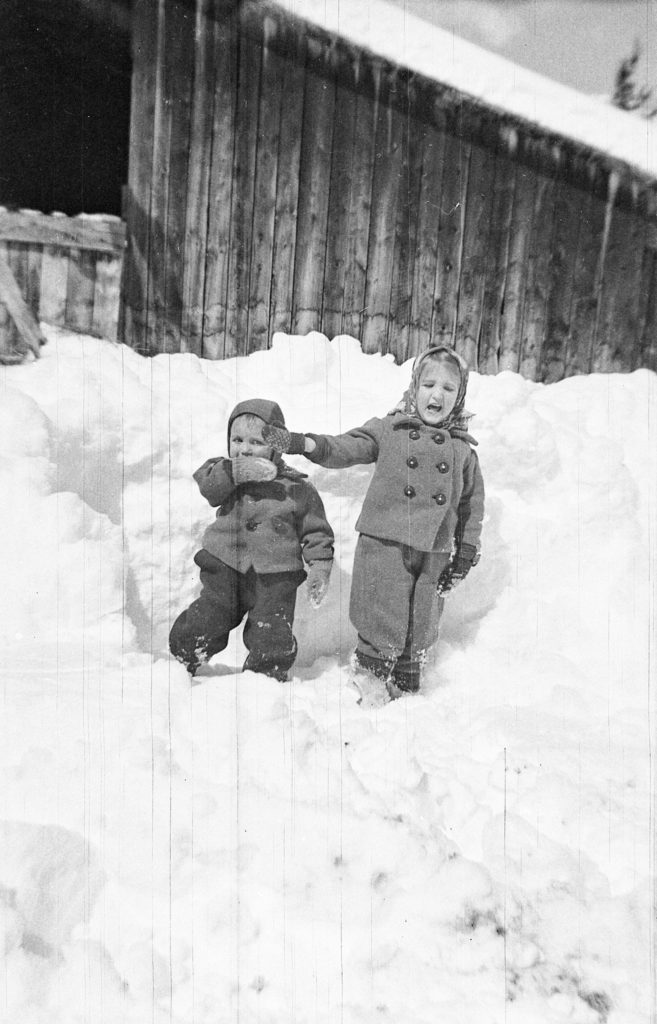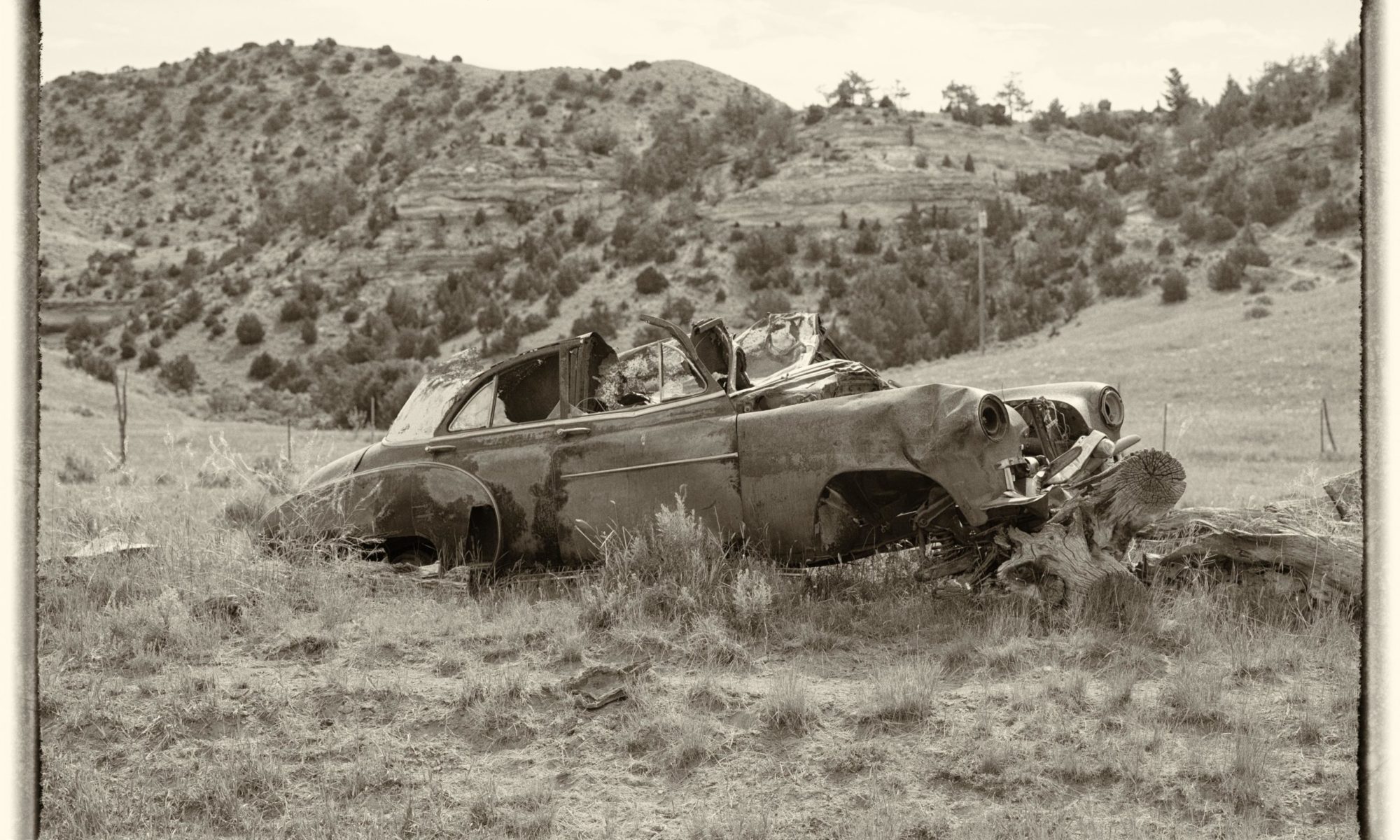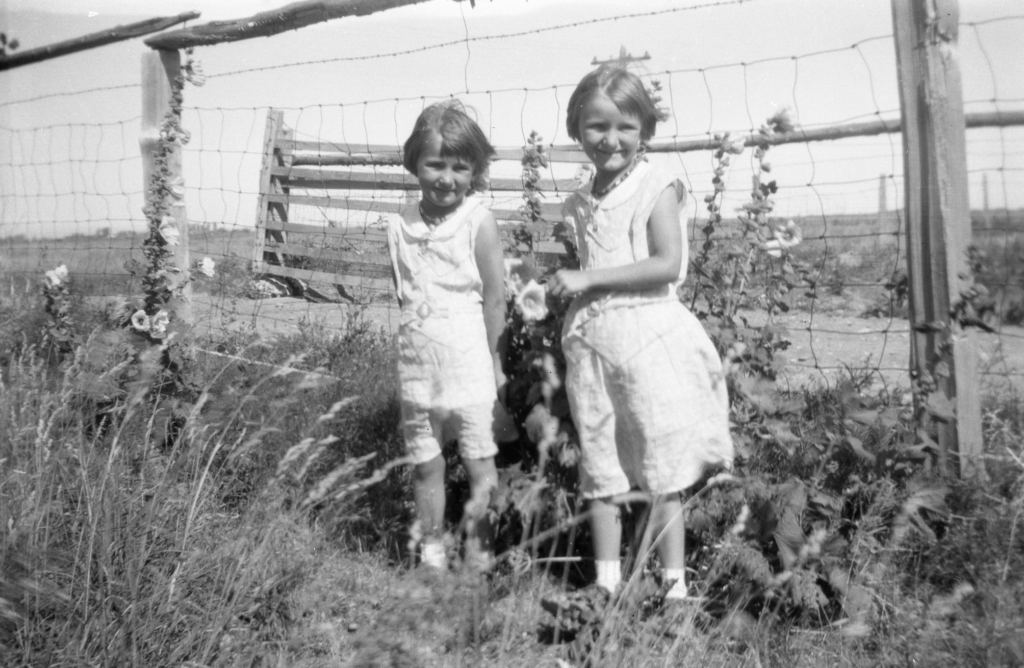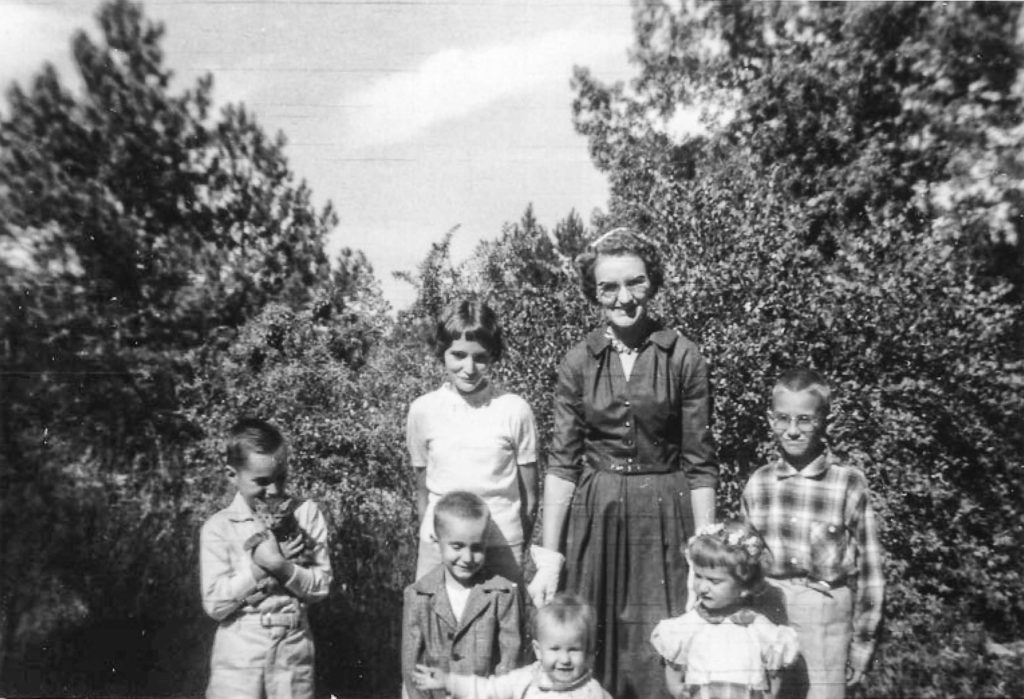by my Guest Author, my dad – the man of the mountains
The people down in Big Timber and Melville thought we were crazy to live that far back in the Crazies in the wintertime. They were almost right.
Winter was a son of a gun. For four months of the year we put chains on our car at the Olson Field Bridge four miles away. We carried a snow shovel and even then, sometimes, we walked and left our automobile off the road or in a snow drift.
Some winters the Cletrac tractor was the only thing that could manage the road between our house and the herd of cattle four miles down country. My father would wrap up snug and lay down on the sled that I pulled down the road and back. And driving the caterpillar tractor was cold with a capital K. At times I tied twine to the brake rods and walked behind it guiding it with lines like it was a team of horses.
Anyone who lived that far back in the mountain wilderness got acquainted with the curse of winter. The book writer in the family might say, “Winter is a bitch.” But there were also blessings. Just come with me and find a special place and enjoy our land of snowdrifts. Winter gave us a wonderland for hand sleds, skis and red nosed children. When we came home from school, we’d grab our sleds and head for the sled race tracks on the drifted hillsides.
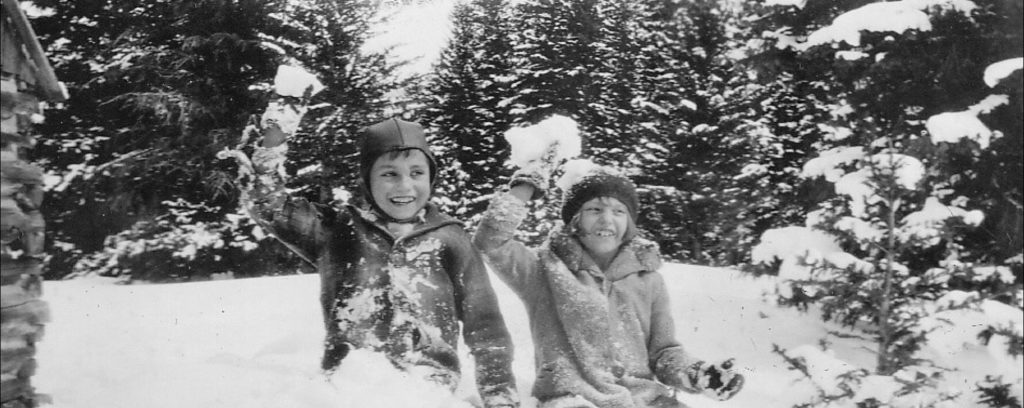
On one sled race that I especially remember, Sister Barbara run-started her sled, sped down the hill, crossed a swale, and landed on the limbs of a fallen tree. She jumped up with blood flowing from a tree limb gash and shouted. “I won!”
A part of the winning was having had a warm house to get into. The west wind could be is driving snow across thehouse roof pouring off the eaves like a waterfall with the snow drift on the front side of the house so deep we had to shovelsnow away to see out the window – on days like that it’s nice to be hugged by a warm house.
Icicles could hang from eaves to the ground, the thermometer could read twenty degrees below zero, but who cared, if there was a glowing fire place or a wood heater with red cheeks.
The uncles had a super large house with a massive rock fireplace accented with a mantel covered with interesting Indian relics and the mounted head and antlers of large bull elk. That fireplace burned lots of wood and sent the heat up the chimney. The fireplace was more show than heat. It would warm the back of your legs if you stood in front of it. One of our home improvements was a stone fireplace that showed the head and antlers of a buck deer. The fireplace also housed a Heatilator that would consume any wood that would burn and throw out lots of heat. Before that we had a heater stove that was made out of a fifty-gallon barrel. It had a draft vent that was borrowed from a manufactured stove. It might go “Put, put, put.” What it lacked in looks it made up by output. That stove would really put out the heat. We liked to watch its red cheeks when it got really hot.
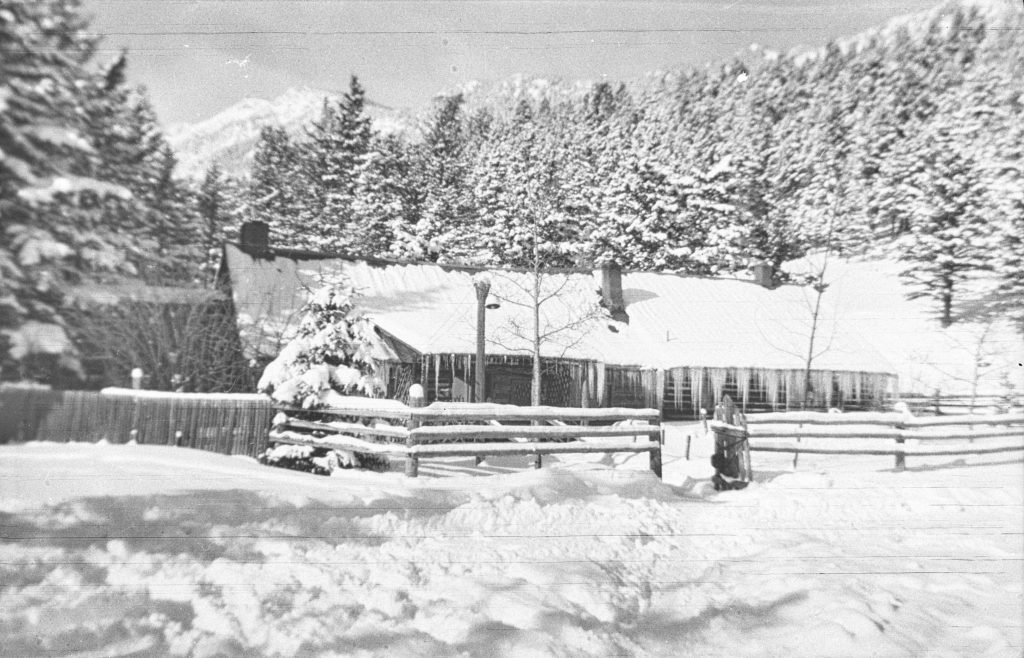
REAL WINTER COMFORT
J. Frost rides the wind tonight.
He shakes the window screen.
He whispers through the key hole,
“Let me in.”
The fire’s aglow inside,
The hearth log sends its flame
higher up the chimney,
When it hears Jack Frost’s name.
At every heart grown cold,
And every demon, dread, and doubt,
Light faith’s hearth log yet again
And coldness will flee out.
